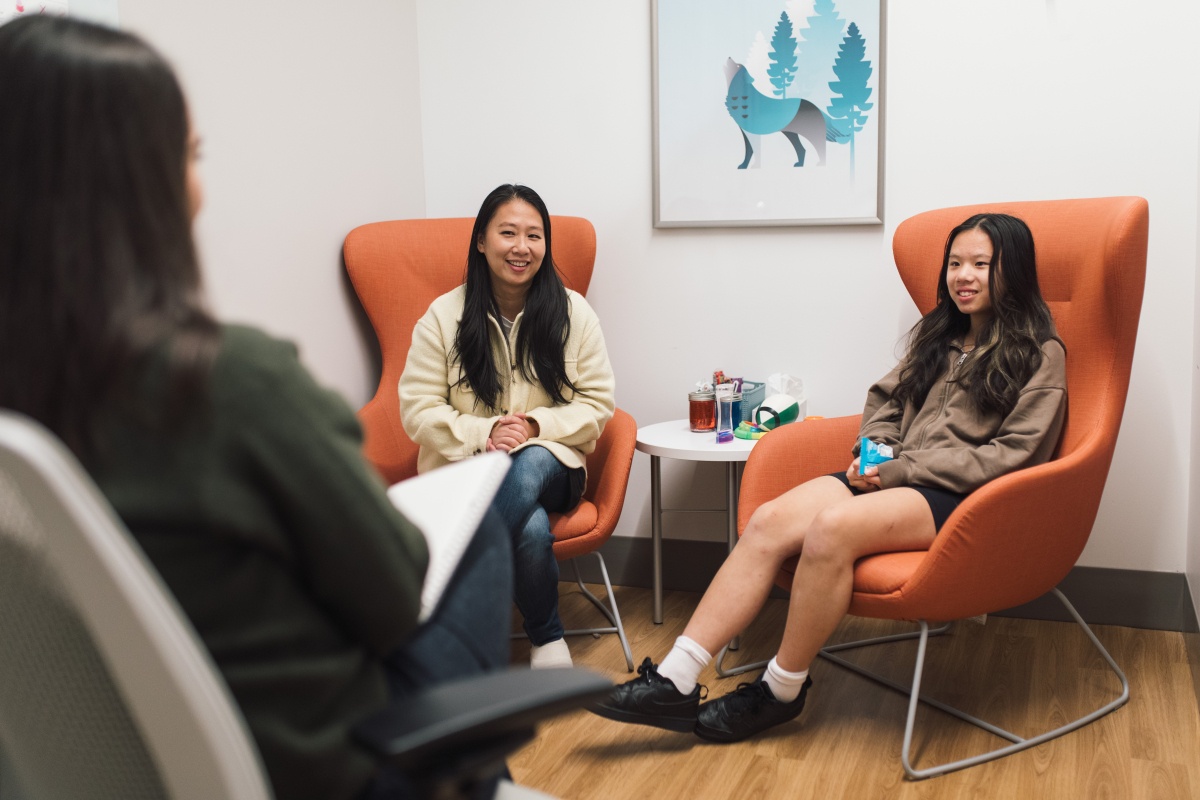Parents Like Us Have Something to Say
Chantal Brasset, a Family Peer Supporter at Foundry Victoria, shares her experience working alongside the Improving Treatment Together (ITT) Project team and her reflections on the research findings and experiences of the many caregivers involved.

Caregivers’ experiences, needs, and ideas for improving opioid use treatments for young people were recently published online in the journal Substance Abuse Treatment, Prevention, and Policy. Chantal Brasset, a Family Peer Supporter at Foundry Victoria, shares her experience working alongside the Improving Treatment Together (ITT) Project team and her reflections on the research findings and experiences of the many caregivers involved, which led to the development of the Parent Handbook, titled, “Parents Like Us: The Unofficial Survival Guide to Parenting a Young Person with a substance use disorder.”
Parents like Us. On my first day of work at Foundry Victoria, I was asked to sit in on a phone call. This was back in November of 2019: a time when the coronavirus was a whisper, Zoom was unheard of, and there were four of us crowding in a small back room.
There was talk about holding community-based workshops for parents to work together to create meaningful solutions for the opioid crisis. Parents like us are passionate about supporting our kids through some of the most unimaginable of circumstances, and it was easy to recruit an amazing group of people to put their hearts and heads into this project.
When we showed up in that beautiful room in February of 2020 with all our passion and ideas, we wanted our efforts to make a difference. We wanted to know who was going to hear our voices and how we could get them to listen. We wanted to save our children and the children of parents like us.
We were asked what our experiences had been. We were asked “what would be helpful?” We were told to dream big. Out of the three workshops across the province, the others being in Prince George and Vancouver, there were 378 individual ideas put forth. Parents and caregivers who have been on this journey for a while are experts in this field. While an engaged youth may spend 1-2 hours a week with service providers, it is parents and caregivers who are often there through the rest. We can see the gaps, and we can see solutions.
Parents reflected on their own naivety when they began to learn of their young person’s substance use. They reflected on the scrambling to get educated and piece services together that might be helpful. The devastation they felt when learning that they had to wait until their young person wanted help, while continually being told that they could almost expect them to die from an overdose.
Parents were angry, frustrated, and afraid – the never-ending rollercoaster of pushing so hard to save a life, and then being blocked for not having consent to learn how their child is doing. They love their children fiercely and desperately want to help them before it is too late.
They can see that the more entrenched that their loved one gets in the culture of substance use disorder, the more fractured their family relationships become and the harder it is to support them. The chronic traumatic events and grief that the whole family faces are overwhelming.
Out of those 378 ideas that were brought forth, 12 Victoria parents courageously committed to writing a handbook for other parents. They felt first-hand the loneliness, the stigma, and the shame of supporting a loved one with substance use disorder. They knew the ins and outs of navigating services in their city. Equipped with their lived experiences and knowledge, these parents wrote from their hearts in hopes of making it just a little bit easier for others.
The book is titled, “Parents Like Us: The Unofficial Survival Guide to Parenting a Young Person with a substance use disorder.”
It was and is still obvious that Parents like Us have something to say.
